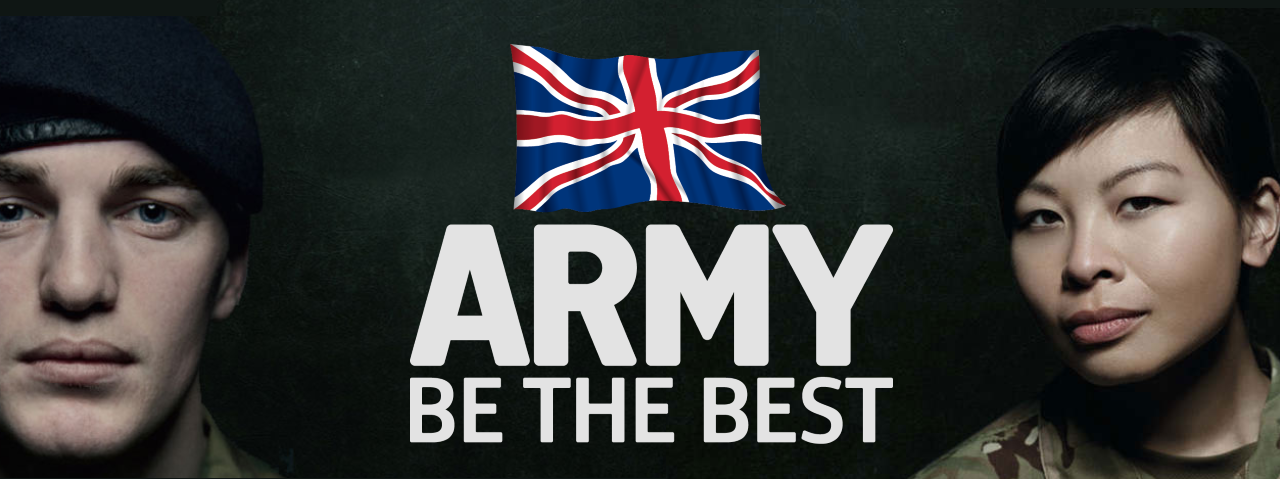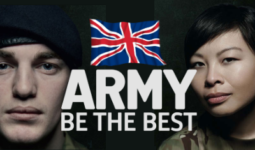Army Officer Jobs
Army officer jobs… did you know?
Similar jobs: Army Reserve, Professionally Qualified Officer (PQO)
As an Army officer you’ll command and motivate teams of soldiers in times of peace and war. It’s not for the faint of heart, but personal strength comes in many different forms.
There’s plenty of variety to the roles you could do as an Army officer. You could work in a combat role, leading a troop of tanks. You could work as in healthcare, nursing injured soldiers. You could be a veterinary officer and work with military animals. Or you could work in engineering, transport, technology, intelligence and communications. As an Army officer you’ll help to protect the country while specialising in an area of work that really interests you.
DID YOU KNOW? Army officer roles are open to all genders (except for Infantry, which will be open to women at the end of 2018).
All Careers Protective Services CareersArmy officer job trends
How much money can you make as a army officer?
£28,000 to £102,000
Recent labour market information says you can earn between £26,000 (starting training salary) and £102,000 (Brigadier) a year as an Army officer.
Your starting salary can vary because of factors like level of experience, training, or location. Your salary as an army officer will increase over time as you build skills, knowledge and experience and progress in rank. You’ll get extra pay for specialist roles, like being a diver or parachutist. You also get perks like free medical and dental care, overseas allowances, and money towards food and housing.
What entry qualifications and training do you need?
School, college and training
You can join the British Army as an officer straight after A-levels.
To become an Army officer, you’ll need:
- 7 GCSEs at grades 9-4 (A* to C) or the equivalent including English, maths, and a foreign language or a science
- 2 A-levels or the equivalent with 72 UCAS Tariff points.
You will also need to:
- Be aged between 18 and 28 years and 11 months
- Meet the British army nationality and residency rules
- Pass a full army medical and get a GP’s medical report.
You will also need a security check and clearance from the Disclosure and Barring Service (DBS) if you are successful in your application.
You can find out more about the recruitment process here.
University and degrees
You can get support from the armed forces to study for a subsidised degree in these areas:
- Engineering
- Technical
- Business
- Logistics
This scheme is run by the Defence Academy, and its aim is to provide engineering and technical graduates to the Army, Royal Navy, Royal Air Force and the MOD Civil Service.
You’ll get a bursary of £4,000 a year and you can earn training pay on top, up to £2,000, every year you study.
Find out more about the Defence Technical Undergraduate Scheme (DTUS).
Apprenticeships and traineeships
The British Army is a Centrica Top 100 Apprenticeship Employer. You can train for over 40 jobs by doing an Army apprenticeship.
The two main types of Army apprenticeships:
- Level 2 – equivalent to five good GCSEs
- Level 3 – learn a specialism, equivalent to getting two A-levels
You can then go on to do a higher apprenticeship, a degree, or a Master’s. You don’t need fantastic grades to apply, because the Army will train you. You have to be at least 16 to start.
DID YOU KNOW? An Army apprenticeship is how 19 in every 20 soldiers begin their careers in the military, and you can progress to become an Army officer if you start with an apprenticeship.
Career progression
With time and experience, you can move through the ranks to become a Lieutenant, Captain, Major, Lieutenant Colonel and beyond.
Once you leave the army you could move into a wide range of careers. The Officer’s Association offers help and support to officers who might want to find a career outside the army.
What experience do you need for army officer jobs?
Work experience
You don’t need previous work experience to apply. You can apply for an army role as a school leaver. However, any previous work experience of done can help you to understand what it’s like to follow instructions and work with other people.
Examples of relevant work experience include:
- Work shadowing (even if it’s just for a day)
- Work placements in a company
- Industry placements on a degree course
Volunteering and extra-curricular activities
If you’re between 12 and 18 you can join the Army Cadet Force (ACF). This will help you get more understanding of what an officer does in the army. There are over 40,000 teenage cadets in the UK. The benefits of volunteering include all kinds of qualifications you can earn, from vocational qualifications for your CV (if you help run cadet activities) to CV-friendly qualifications through organisations like St John Ambulance, Mountain Leader Training England, and the Duke of Edinburgh’s Award.
If you’re aged 17 years and 9 months or over, you can volunteer as a part-time officer with your local Army Reserve unit.
What skills do you need for army officer jobs?
What life and work skills do you need to be a great army officer?
Useful skills to highlight and develop in this career include:
- Self-belief skills – you have to believe in yourself, and that doesn’t mean being arrogant. It means having the confidence to persevere, to try again, to get up when you fall down.
- Good communication skills and teamworking skills – the army is one huge team broken down into lots of little teams. It will really help you develop your teamwork skills, whether you’re in demanding combat situations or working in transport or IT.
- Good problem solving skills – the army is all about overcoming challenges. You’ll be trained to do this in the most effective way, but you’ll also find it’s good to get creative. There’s often more than one solution to a problem, and it doesn’t always involve bringing out the big guns. Diplomacy can be just as effective a way to solve a problem.
- Good organisation skills – you’ve probably heard how important it is to have clean kit in the army and do things a certain way. It’s all part of training you to be smooth and efficient. Whether you’re trying to feed 5,000 as an army cook or figuring out where to place troops on hostile terrain, organisation is key.
- Self-management skills – you’ll be trained from Day 1, but becoming your very best also comes from within. You can be drilled any number of times, but who is the real person that says “you can do this”? That person is you. You have to want this, and be willing to both push yourself and accept support from others to be the best you can be.
Vocational qualifications and work experience will help you build these skills over time.
Start building these skills right now - sign up for free Young Professional training.
What does a army officer do?
Depending on your role, you could be based anywhere from an office or engineering workshop to a field hospital. Once you’re an Army officer, you’ll have people under your command. That means you need to be responsible for their training, discipline, and welfare. It also means you’ll be responsible for operational success.
Who could you be in a combat role?
- Infantry platoon commander leading a team of 30 trained soldiers on operations
- Helicopter pilot officer with responsibility for your crew and supporting ground troops
- Tank troop officer in charge of 12 men and their vehicles
- Artillery troop officer leading a team of 30 soldiers and in charge of weaponry.
Who could you be in a healthcare role?
- Nurse caring for injured soldiers in demanding situations
- Medical support officer or dental officer looking after the health of army personnel and their families
- Veterinary officer working with military animals.
Where else could you work?
- Transport and Logistics as a logistic troop commander
- Engineering and maintenance as an engineering troop commander
- IT, intelligence, and communications as an intelligence officer
- HR (Human Resources) and support as a military police officer or a chaplain.
Your first steps into army officer jobs
Army officer jobs are advertised under different job titles. When you’re looking on job boards, look for the following types of job:
- Army apprenticeship
- Army officer
Useful organisations and links
Protective Services Career Guides
View job descriptions with average UK salary, useful qualifications and a variety of routes into this career.
YES! I Want More Free Careers Help...
So what are you waiting for? Grab your future.


















